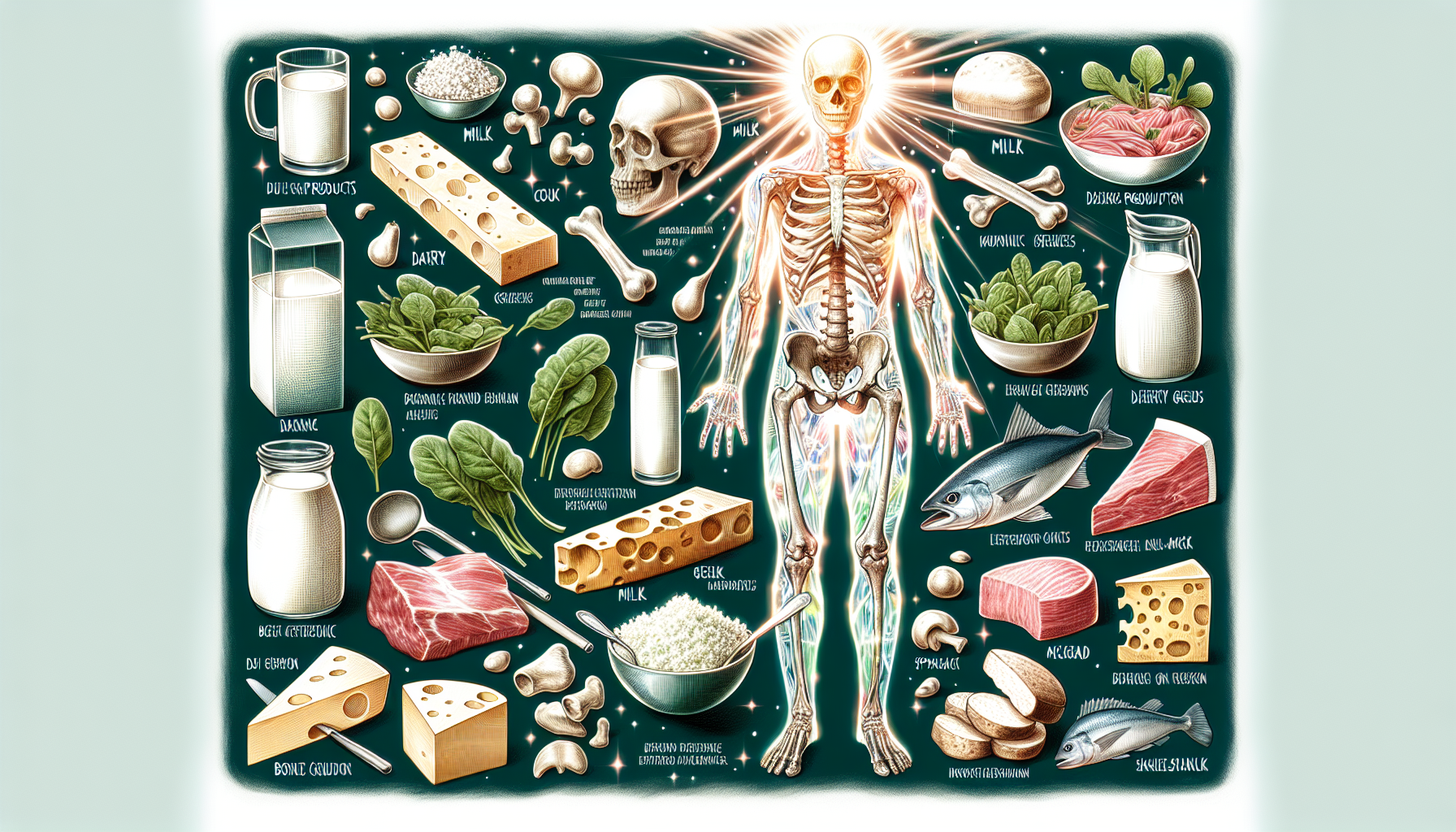Food allergies can have a profound impact on an individual’s diet and nutrition, which in turn can affect various aspects of health, including the strength and density of bones. Ensuring strong bone health is crucial for preventing fractures and diseases such as osteoporosis, especially for those with dietary restrictions due to allergies. This article aims to explore the intersection of bone health and food allergies, providing strategies to maintain and improve bone density and strength without compromising dietary safety.
The Importance of Nutrients in Bone Health
The human skeletal system requires a variety of nutrients to maintain its strength and function. Calcium and vitamin D are often highlighted for their critical roles in bone health. However, people with food allergies, especially to dairy products, may find it challenging to get enough calcium from their diet. Similarly, those allergic to fish may lack adequate vitamin D. It’s essential to identify alternative sources of these nutrients or consider appropriate supplements to compensate for these dietary gaps.
Calcium and Food Allergies
Calcium is vital for building and maintaining strong bones. For those who are lactose intolerant or allergic to dairy products, alternatives include fortified plant-based milks, such as almond or soy milk, and green leafy vegetables like kale and broccoli. Vegan Sources of Calcium and Vitamin D for Bone Health offers a comprehensive guide for individuals seeking non-dairy calcium options.
Vitamin D and Sun Exposure
Vitamin D is another cornerstone of bone health, aiding in the absorption of calcium. While the body can produce vitamin D through sun exposure, factors like geographic location, skin pigmentation, and sunscreen use can affect this natural synthesis. For individuals with food allergies who also have limited sun exposure, vitamin D supplementation may be necessary. Critical Vitamins for Bone Density and Health discusses the importance of maintaining adequate vitamin D levels.
Other Nutrients for Bone Health
Magnesium, phosphorus, and vitamin K are also important for bone health. Nuts, seeds, and fish are good sources of magnesium and phosphorus, but for those with allergies to these foods, supplementation might be considered. Vitamin K can be found in green vegetables and fermented foods, which are generally safe for those with common food allergies.
Exercise and Bone Strength
Physical activity, particularly weight-bearing and resistance exercises, can help build and maintain bone density. The Effects of Low-Impact Exercise on Bone Strength highlights how exercises like walking, dancing, and strength training contribute to bone health without placing undue stress on the joints.
Gastrointestinal Health and Bone Density
The relationship between gastrointestinal (GI) health and bone density is often overlooked. Individuals with food allergies may experience frequent inflammation in the GI tract, which can interfere with the absorption of bone-supporting nutrients. To support both Digestive Health and bone health, it is imperative to manage food allergies carefully and ensure a gut-friendly diet.
Long-Term Strategies for Bone Health with Food Allergies
Living with food allergies requires careful planning to ensure a balanced intake of nutrients for bone health. Here are some strategies to consider:
Diversify Your Diet
Expanding the variety of foods within your dietary restrictions can help ensure you receive a broad spectrum of nutrients. Incorporate colorful fruits and vegetables, seeds, and safe whole grains to maximize your nutrient intake.
Consider Supplements
If dietary sources are insufficient, supplements can play a key role in maintaining bone health. Always consult with a healthcare provider before starting any new supplement regimen to ensure safety and proper dosage.
Regular Health Monitoring
Regular check-ups with a healthcare provider, including bone density scans, can help monitor bone health and adjust dietary or lifestyle strategies as needed.
Stay Informed
Keep abreast of the latest research and resources regarding bone health and food allergies. External resources like the National Osteoporosis Foundation provide valuable information tailored to individuals at risk of bone density issues.
Conclusion
For individuals with food allergies, maintaining bone health can be challenging but is by no means insurmountable. By understanding the essential nutrients for bone strength, incorporating exercise, monitoring gastrointestinal health, and employing long-term strategies, it is possible to support robust bone health despite dietary limitations. As always, partnering with healthcare professionals and nutritionists who understand the intricacies of both bone health and food allergies will offer the best outcomes.
Remember, bone health is a lifelong journey, and with the right knowledge and resources, you can navigate this path confidently and safely.



